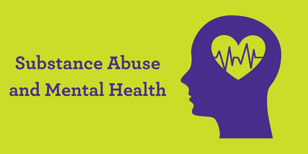It's a topic that's seen increasing attention over recent years: the intricate relationship between substance abuse and mental health.

As parents, understanding this connection can be instrumental in recognizing warning signs, guiding conversations with our children, and ensuring their overall well-being.
1. Dual Diagnosis: When Substance Abuse Meets Mental Health
A term that parents may hear more often is "dual diagnosis," which refers to when someone has both a mental health disorder and a substance use disorder. For example, a teenager who is struggling with depression might also be abusing drugs or alcohol. These two issues are often deeply intertwined, and understanding one can offer insights into the other.
2. A Two-Way Street
The relationship between substance abuse and mental health is complex:
Self-medication: Many people, including teens, might use drugs or alcohol to cope with untreated mental health issues, such as anxiety or depression. They believe that substances offer temporary relief from emotional pain.
Exacerbation: On the flip side, drug and alcohol use can intensify or even cause mental health symptoms. For instance, excessive drinking can bring about symptoms of depression.
3. Spotting the SignsParents should be aware of red flags that might indicate either substance abuse, a mental health issue, or both:
Behavioral changes: Sudden shifts in behavior, mood, or interests can be indicative of a deeper problem.
Withdrawing from family: If your child is distancing themselves more than usual, it might be time for a conversation.
Neglecting responsibilities: Falling grades, missing out on chores, or consistently being late can be signs.
Physical symptoms: Bloodshot eyes, unexplained weight loss or gain, and irregular sleep patterns should not be ignored.
4. The Importance of Open Dialogue
Start conversations about both substance use and mental health early. Children who are well-informed and feel they can openly discuss these issues with their parents are often better equipped to handle them.
5. Seeking Help
If you suspect your child may be dealing with substance abuse or mental health issues:
Don’t panic: Reacting out of fear or anger can shut down any lines of communication. Approach the situation with understanding and empathy.
Seek professional guidance: A therapist, counselor, or addiction specialist can offer both you and your child support and resources.
Substance abuse and mental health challenges can be daunting, but understanding their connection can empower parents to make informed decisions. By staying educated, maintaining open lines of communication, and seeking appropriate interventions when necessary, families can navigate these challenges and support their children in living healthy and fulfilling lives.
